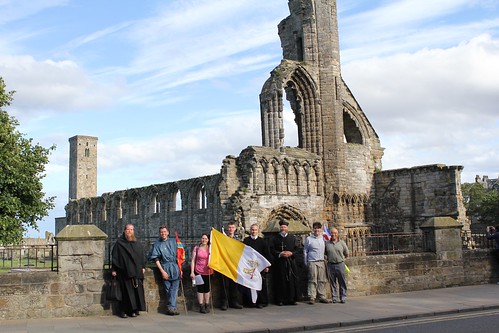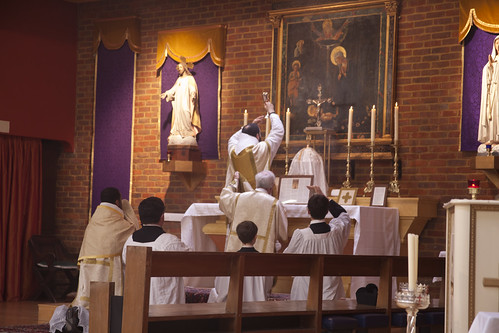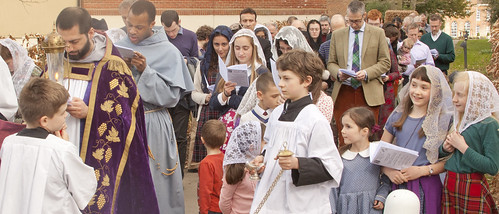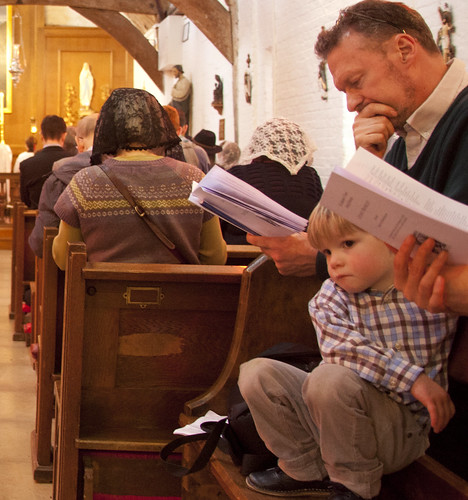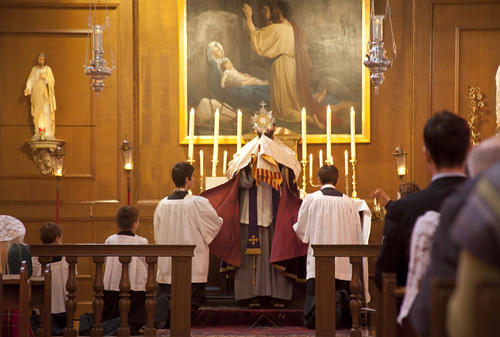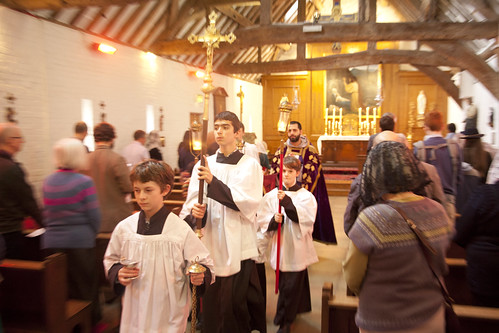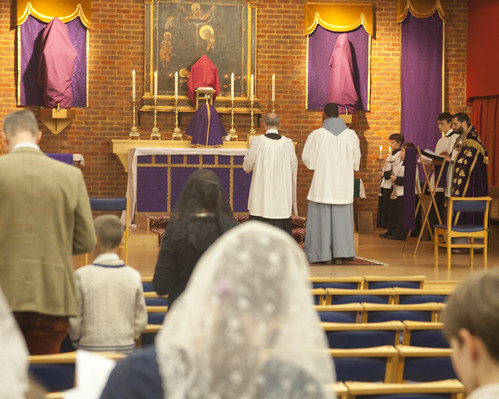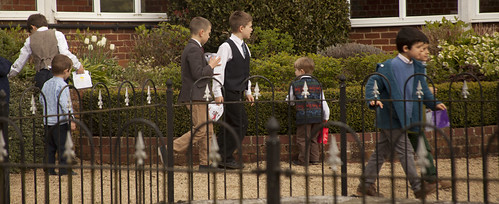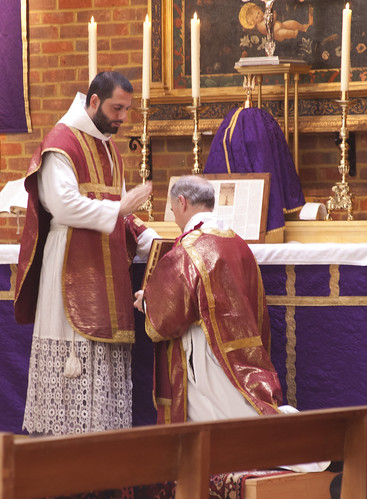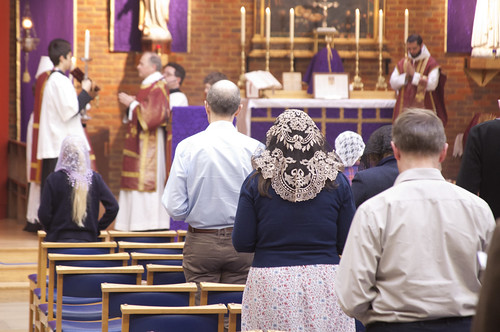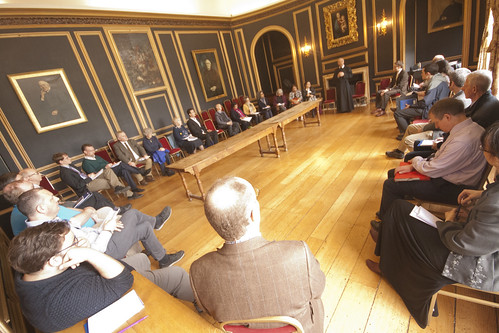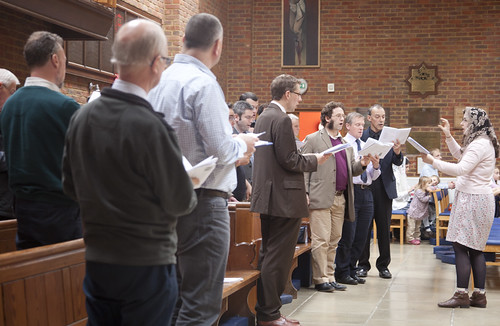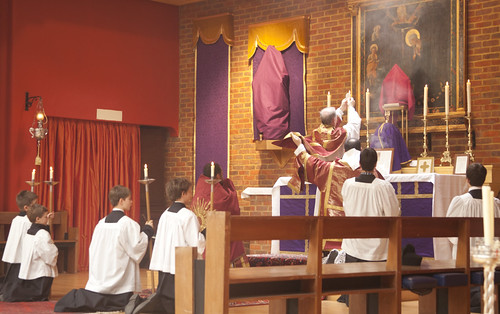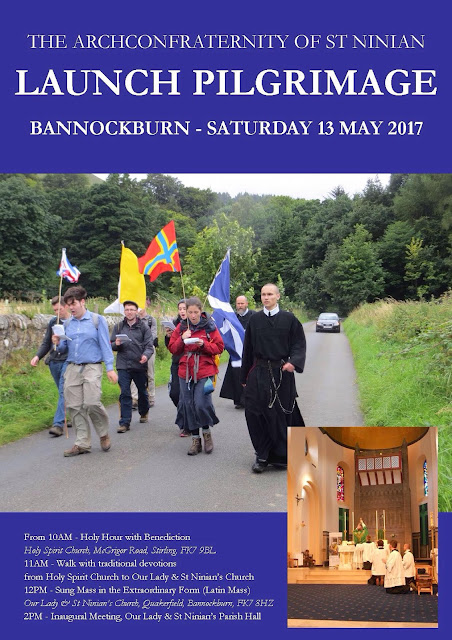Chairman's Blog
Scotland's 'Two Shrine' Pilgrimage 2017
I noted the success of the first 'Two Shrines Pilgrimage' a while ago; her is the booking info for the next one.
---------------------------
We are pleased to announce the dates of the second annual Two Shrines Pilgrimage, a three day walk from Edinburgh to St Andrews with the particular intention of the reconversion of Scotland. The pilgrimage will incorporate the Extraordinary Form of the Holy Mass and traditional devotions.
If you are interested in walking all or part of the route, please register your interest by e-mailing the2shrines@gmail.com as soon as possible.
The itinerary will be as follows:
Saturday 5 August - St Mary's RC Cathedral, Edinburgh, to St Margaret's Memorial Church, Dunfermline;
Sunday 6 August - St Margaret's Church to Falkland Palace;
Monday 7 August - Falkland Palace to St Andrew's Cathedral, St Andrews.
Members of the public are welcome to follow the pilgrimage and to attend its liturgies and other events, which will be advertised in due course. If you wish to be kept updated by e-mail please contact us using the address above.
Support the work of the LMS by becoming an 'Anniversary Supporter'.
Debate about teaching music (and Latin)
 James MacMillan, Patron of the Latin Mass Society, has signed a joint letter on musical education in response to an article by Charlotte Gill wrote in the Guardian. Gill wrote:
James MacMillan, Patron of the Latin Mass Society, has signed a joint letter on musical education in response to an article by Charlotte Gill wrote in the Guardian. Gill wrote:
For a creative subject, music has always been taught in a far too academic way, meaning that theoretical knowledge is the main route to advancement. While there are routes into musical careers for the untrained, and many pop, rap and grime artists have never studied music formally, there are also dozens of choirs and amateur collectives that put a huge focus on musical notation.
This is a cryptic, tricky language – rather like Latin – that can only be read by a small number of people, most of whom have benefited from private education. Children who do not have the resources, or ability, to comprehend it, are written off. Even when they are capable performers.
Gill is winding a good few issues up together here. We might agree with her criticism of the 'Grade' system of learning instruments, followed by many children, that it can make learning an instrument something of a grind. But a more important issue she has left out is the poor quality (or motivation) of many music (instrument) teachers. This is not be unrelated to their poor pay, and their poor treatment by many schools, where they have to eke out an existence on the fringes of the timetable and the school community, often working for several schools at once, resented by the teachers of other subjects for taking children out of their classes. It's a pretty bad system, all things considered. (Would anyone tolerate this for sports? For art? For Maths?)
When she points out that people who can't or simply haven't mastered musical notation have many opportunities to make music in contexts where this lack isn't a problem, it is hard to know what she is actually complaining about. The choirs who do need it, or at least find it vastly convenient, and the classical music world in general, are perfectly rational and within their rights to demand it.
The comparison with Latin is telling. Being able to read musical notation, or Latin, opens up to you a whole world of Western culture. Gill is right to deplore one result of the most recent educational reorganisation (the 'English Baccalaureate' focusing attention on core academic subjects), which is the narrowing of the opportunity to enter this world to children whose parents can afford private music tuition. We might say something similar about Latin's disappearance from state schools (though it is now coming back).
But Gill then makes the wholly illogical, Guardianisty inference that, despite having just said that the reason for the decline in musical literacy is a shift of resources, somehow the mere fact that it has become the preserve of an elite means that it is intellectually beyond the children of the less wealthy. As if this were not crazy enough, her next assertion is that, apparently for this reason, reading music shouldn't be taught as much as it is now. She seems to be angry with the elite who preserve this skill, though it certainly isn't its fault that music budgets have been cut, and out of anger with this elite she does not want ordinary children to join it.
It is important to understand Gill's position, because it is widely held in the progressive educational establishment. There is a sneaking idea that poor people are stupid, and a less hidden idea that highly skilled and cultured people are wicked. The first means that it would be impossible to give people from materially deprived backgrounds real intellectual skills or an appreciation of culture. The second means that it would not be desirable to do so. Grasp this mindset, and you grasp a lot of what has gone wrong with education since 1960.
Nothing more destructive, educationally, could be imagined. Applied to music, this attitude excludes children not only from a closer engagement with their culture, but the chance of making music a career, or a better one. John Lennon, one of the 20th century's most commercially successful musicians, lamented the poor musical education he had had, which made it harder for him to express his musical ideas as he wished to. At least there was no one at that time actively stopping him from learning about music, as Gill would apparently want to do today. Memo to the Guardian: ignorance is not liberating.
James MacMillan et al. (the letter has more than 600 signatories), has pointed out the patronising and oppressive absurdity of Gill's sequence of thoughts: let's not call it an argument.
Gill will at any rate be pleased to hear that the many Chant choirs singing at the Traditional Mass tend not to expect people to be able to read music: chant notation isn't the same as modern music anyway. With familiarity, the square notes can serve as an excellent aide-memoir to singers not able to sight-sing. But the educational point she is making is chilling: that the correct response to declining standards should be to drive them still lower, to exclude more and more people from the West's cultural patrimony.
Of course musical notation can be taught more widely, as could Latin: it is a matter of educational priorities. Unfortunately, before we can have a useful debate about timetable hours, we'd need to have at our disposal enough enthusiastic and skilled teachers to use those hours. Not only do we not have enough today, but on present trends we will have even fewer tomorrow.
Support the work of the LMS by becoming an 'Anniversary Supporter'.
Why home school your children? Matt Walsh
I criticised a post of Matt Walsh's the other day, on the subject of getting men to 'man up', so it is only fair I note this post of his on home schooling which is excellent.
Read it here.
Here are just a couple of his points. He's writing about the USA. How much better is the UK?
Third, yes, my kids will eventually be exposed to all kinds of strange and terrible things. As much as I’d like to keep them shielded from the evils of the world forever, I know that I can do no such thing. The question is not whether our kids will be exposed to this or that depravity, but when and how and in what context? Are you prepared to trust the school’s judgment on when Junior is ready to learn about concepts like “transgenderism”? Do you trust their judgment on how he learns about it, and what he’s told about it? If you do, I suppose you aren’t even reading this post right now because you’ve been in a vegetative state for the past 30 years.
Fourth, when a kid is sent to public school, he’s expected to navigate and survive and thrive in a hostile, confusing, amoral environment, basically untethered from his parents, 6–8 hours a day, 5 days a week, 9 months a year, for 12 years. Is a child ready for that challenge by the time he’s 5 years old? Is he ready at 8? At 10? No. Our job as parents is to “train them up in the way they should go,” equip them with the armor of God, fortify them in the truth, and then release them into the world. That process has not been completed in conjunction with them first learning how to tie their shoes. I mean, for goodness’ sake, most adults can’t even manage to withstand the hostilities and pressures of our fallen world for that amount of time. And we expect little kids to do it? That’s not fair to them. It’s too much to ask. Way too much. They aren’t equipped, they aren’t ready, they aren’t strong enough, and they will get eaten alive.
Support the work of the LMS by becoming an 'Anniversary Supporter'.
Family Retreat: Photo essay
The St Catherine's Trust Family Retreat took place last weekend, in the Oratory School. It was our ninth Family Retreat, and a wonderful event as always.
One of the highlights was Stations of the Cross outside, which concluded with Benediction in the 'old' chapel.
We had Vespers on the Saturday and Compline each evening.
On Sunday the younger children had an Easter Egg hunt.
Alongside the Retreat Fr Guy Nichols and Chris Hodkinson led a Chant Training weekend for the Gregorian Chant Network.
Two of the participants were able to have a go conducting the schola in the final Mass of the weekend.
src="https://c1.staticflickr.com/4/3855/33428782400_c5a9928b9a.jpg" width="500" height="374" alt="IMG_9907">
Support the work of the LMS by becoming an 'Anniversary Supporter'.
Catholic University of Leuvain: Abortion 'a fundamental right'
In response to a junior philosophy lecturer distributing a document to students making the argument for calling abortion 'murder', a spokewoman for the 'Catholic University of Louvain' (or Leuvan) in Belgium has made it clear that this is 'contrary to the values' of the institution.
Tania van Hemelryck, the special adviser to the university president on gender politics, spoke to Belgian television on behalf of the university, saying: “The authorities want to find out the exact status of the text and how it was used during this course, bearing in mind that in any case UCL defends the fundamental right to abortion, and particularly women’s right to choose.”...
The official statement published by UCL on its website says much the same thing:
“Whatever the outcome of the inquiry, the right to abortion is enshrined in Belgian law and the note that was brought to the attention of UCL is at odds with the values upheld by the university. Conveying standpoints that contradict these values in the framework of a teaching course is unacceptable.”
Support the work of the LMS by becoming an 'Anniversary Supporter'.
Albertus Magnus Summer Programme in Norcia
In light of the earthquake this seems particularly deserving of support this year: the annual Summer Programme of the Albertus Magnus Centre, associated with the monks of the Norcia community. It is a 12-day programme of study on Aquinas, this year on his sacramental theology.
Support the work of the LMS by becoming an 'Anniversary Supporter'.
Sex education, sexual exploitation
 Not long ago I posted on this blog about how sex education which focuses on consent and ignores all other aspects of sexual morality opens children up to abuse. Here is some concrete evidence, via the excellent Family Education Trust. This focuses on the corrosive nature of the sex ed ideology not only on the children, but on those charged with their care.
Not long ago I posted on this blog about how sex education which focuses on consent and ignores all other aspects of sexual morality opens children up to abuse. Here is some concrete evidence, via the excellent Family Education Trust. This focuses on the corrosive nature of the sex ed ideology not only on the children, but on those charged with their care.
A serious case review published by the Bristol Safeguarding Children Board last year notes ‘an underlying confusion for practitioners in distinguishing between underage but consensual sexual activity between peers and child sexual abuse and sexual exploitation’. But that confusion does not exist in a vacuum. It is rather ‘rooted in the complex and contradictory cultural, legal and moral norms around sexuality, and in particular teenage sexual experimentation’. Put simply, a major part of the problem lies in the moral confusion that has resulted from an abandonment of moral absolutes.
The same theme features in the 2015 serious case review into child sexual exploitation in Oxfordshire. Having made the observation that there were times when ‘confidentiality was put before protection’, the report suggests that for at least some professionals this related to ‘a reluctance to take a moral stance on right and wrong, and seeing being non-judgmental as the overriding principle’. The Oxfordshire report further states that: ‘[T]here was…an acceptance of a degree of underage sexual activity that reflects a wider societal reluctance to consider something “wrong”,’ and argues that ‘action to prevent harm’ should always take precedence over ‘action to be non-judgmental’.
In a most telling comment, the report notes that ‘the reluctance in many places, both political and professional, to have any firm statements about something being “wrong”’ is among the factors that create ‘an environment where it is easier for vulnerable young people/children to be exploited. It also makes it harder for professionals to have the confidence and bravery to be more proactive on prevention and intervention.’
In the light of these observations from the serious case reviews, we should be wary of any approach to sex and relationships education that is reluctant to declare anything ‘wrong’. Children, young people and professionals alike all need a clear moral compass in order to safely negotiate the confused and confusing landscape that lies before them
.Support the work of the LMS by becoming an 'Anniversary Supporter'.
Silverstream Priory on RTE
A sympathetic introduction to the traditional Benedictines at Silverstream in Ireland.
Support the work of the LMS by becoming an 'Anniversary Supporter'.
The Challenge of Islam: Part 1 - the end of secularisation
I was reminded of this post from July 2014 by a story in The Tablet about retired Major-General Tim Cross, an Anglican, who was in despair about the attitude at the Foreign Office that religion really couldn't be the real explanation of anything important in, say, Iraq. The message is sinking in, but very slowly.
The other posts in the short series this post introduced are:
2. Religious Liberty
3. Caught in the Critique of the Decadent West
---------------------------------
I've been reading up a little on the sociology of religion, and the latest stuff is no longer about the Secularisation Thesis: the inevitable secularisation of society. This was to do with the ideas of the Enlightenment, wider education, and prosperity, eroding religious belief, as expressed in that stupid poem by the over-rated Matthew Arnold, published in 1867.
The Sea of Faith
Woodhead explains how sociologists' faith in the secularisation hypothesis was shaken first by the Salman Rushdie affair. Rushdie's book The Satanic Verses was condemned by the Ayatollah Khomeini, who issued a 'fatwa' (ruling) against Rushdie, ordering that he be killed. This was in 1989. It made the sociologists realise that religion, or at least Islam, was actually stronger, in its ability to shape events, even in the West, than it had been before: it wasn't fading away in obedience to the Secularisation Thesis. And then, 22 years later, there was 9/11
If Western sociologists had been paying attention, they would have noticed the revival of Islamic practice and zeal with started in Egypt in the 1970s, and was continued by the Islamic Revolution in Iran in 1979, and has continued some more in the overthrow of a whole heap of secular-minded regimes across the Arab world in recent years. To give them due credit, however, sociologists like Woodhead have been more on the ball than Western politicians, who appear to have clung to the Secularisation Thesis right up to the last few months. I suspect many of have not abandoned it yet. The idea that all the Middle East needs is prosperity and education, and religious zealotry will dissipate, is still rattling around in the corridors of power. Do these people read the newspapers? Syria was a prosperous nation with a big, educated middle class. They've got money coming out of their ears in the Gulf. There are universities of international standard in Egypt. And guess what? It was as those universities that the Islamic revival began. It was there, not in the slums, where young women started to wear head scarves.
In truth, the Secularisation Thesis was kept on its shakey legs after the War not by the inevitable effects of education and prosperity, but by the Cold War. It was the resources poured into Communist and anti-Communist factions, by East and West, which made the world outside North America and Western Europe look as if it was focused on secular issues. Once that was out of the way, an awful lot of people have turned to traditional religious themes to assert their identity and culture and distinguish themselves from their colonial past. We are now living in a period in which radicalised Hindus are persecuting Muslims in India, radicalised Buddhists are persecuting Muslims in Burma and Sri Lanka, radicalised Sunni Muslims are persecuting Shia Muslims in Iraq, and Christians are being persecuted by pretty well everyone. It's not a pretty sight, but it's not secularisation.
Is victory for the homosexual lobby and 'reproductive rights' feminists at the United Nations around the corner? You've got to be joking. I follow the excellent Friday Fax, which covers the infinitely depressing machinations of the World Government in Waiting. The progressive lobby's breakthrough is always round the corner. They've got the western nations in their pockets, they have the procedures taped, they like to see aid money being used to buy votes. But things are not going their way. A horrible realisation should begin to dawn on them some time soon. We have a world-wide revival of traditional values on our hands.
To repeat, this has actually been going on at least since the early 1970s. And it is not just Islam. Even Christianity is benefitting: the Catholics of southern India and West Africa, pressure from Hindus and Muslims notwithstanding, have had a very good few decades, and the very visible presence of their priests in the West has more to do with the massive numbers of vocations they have than persecution. In China, too, Christianity is on the march, as the most vigorous alternative to Communism.
There is nothing inevitable about secularisation. The sociologists have now accepted this, and the politicians, eventually, will follow them. This reality will solve some problems, such as the prospect of a right to abortion being established in international law by some international mega-treaty, but obviously creates others. The punch-line of this blog post is simply this: in addressing the problems, which are very real and very pressing, let's not try to pretend that the Secularisation Thesis is true after all. And part of that pretence is the guff about Religious Freedom.
I've argued more than once that appeals to Religious Freedom, to defend the Church against militant secularists in the West, is a complete waste of time. It is even more of a waste of time when directed against non-Christian religious zealots. This is so blindingly obvious that it shouldn't need saying, but I am saying it because I can see the temptation to make this appeal in a recent speech by Lord (David) Alton. I'll address this in the next post.
Support the work of the LMS by becoming an 'Anniversary Supporter'.
2017 Launching a new Confraternity in Scotland: May 13
The event will take place in Bannockburn, Stirling, and the proposed format is as follows:
From 10am (TBC): Holy Hour concluding with Benediction of the Blessed Sacrament;
11am: Procession from Holy Spirit Church to Our Lady & St Ninian's Church with traditional devotions;
12 noon: Sung Mass;
2pm: Inaugural Meeting to formally establish the Archconfraternity.
13 May will be the 100th anniversary of Our Lady's 1st Apparition at Fatima so we will also incorporate the devotions necessary to obtain the plenary indulgence associated with the centenary.
Support the work of the LMS by becoming an 'Anniversary Supporter'.

